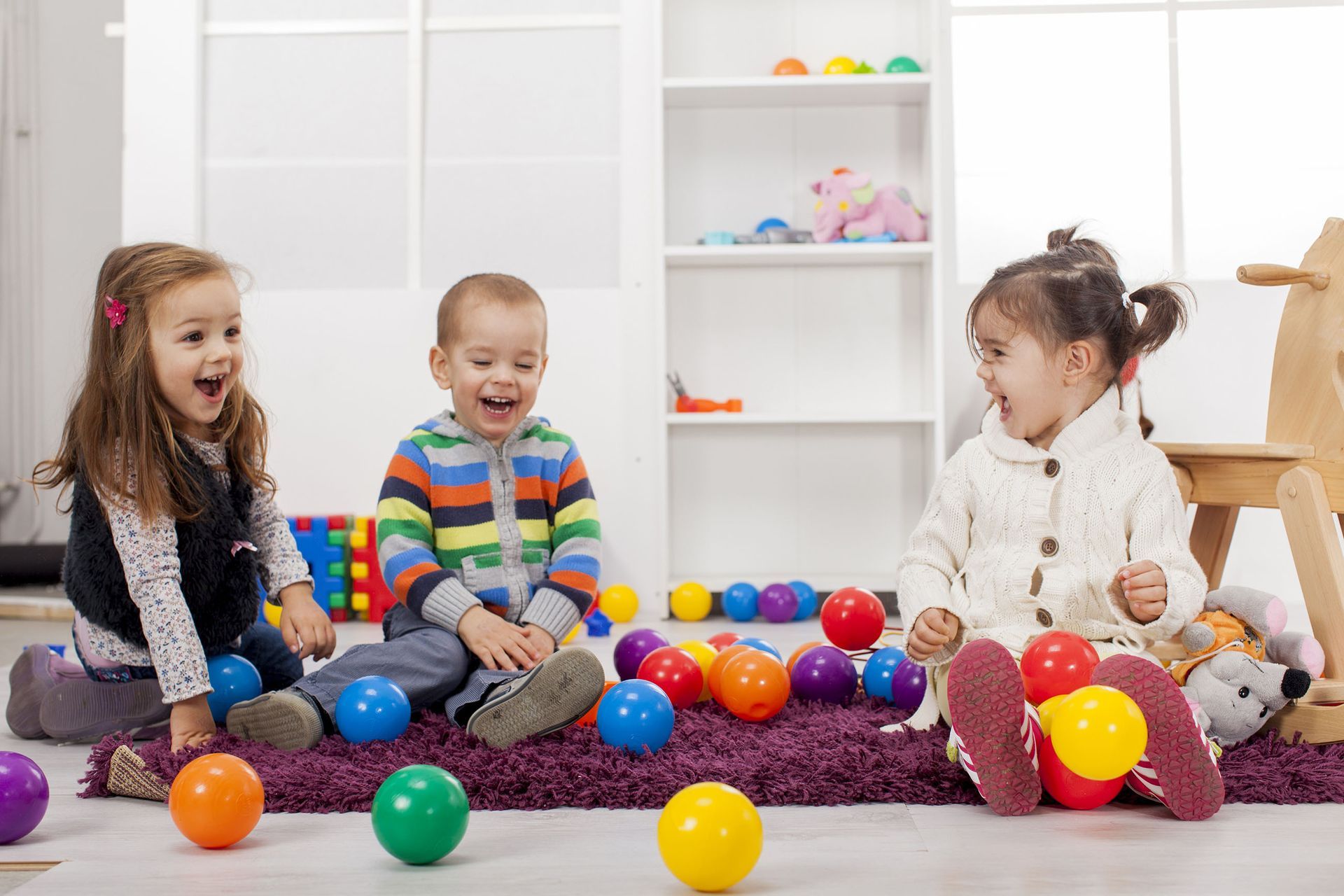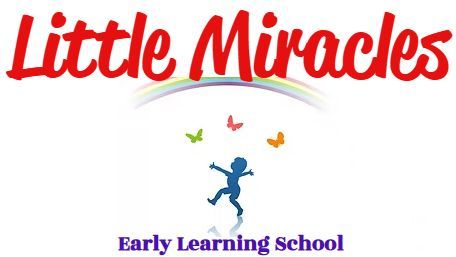October 24, 2025
Early education programs have become an essential part of child development in today’s busy world. With more families balancing work and home life, the need for quality care that fosters learning and growth is stronger than ever. According to the NCES, in 2024, 65% of children aged five and under had all available parents in the workforce, highlighting the increasing demand for child care services. But beyond meeting practical needs, an early education program can provide children with a solid foundation for lifelong success—socially, emotionally, and academically. Here are several key reasons why enrolling your child in an early education program is one of the best decisions you can make.
1. Builds a Strong Academic Foundation
Early learning environments help children build essential academic skills before they even enter kindergarten. Through play-based activities, story time, and guided instruction, kids learn basic math, literacy, and problem-solving skills in a fun, engaging way. These early lessons encourage curiosity and prepare them for future classroom success. Children who attend an early education program often show stronger reading and comprehension abilities when they transition into elementary school.
2. Promotes Social and Emotional Development
One of the greatest benefits of early education is the social interaction it provides. In a structured setting, children learn to share, cooperate, and express emotions appropriately. Teachers guide them through moments of conflict and help them understand empathy and respect for others. Developing these social and emotional skills early on helps children adapt more easily to new environments and builds confidence in interacting with peers and adults.
3. Encourages Independence and Self-Confidence
Children in early learning programs are encouraged to take small steps toward independence. Whether it’s washing their hands, cleaning up after playtime, or following a daily routine, they learn responsibility and self-reliance in a nurturing setting. Teachers provide guidance while allowing children to make choices and solve problems independently. This balance of support and freedom helps children develop confidence in their abilities and pride in their accomplishments.
4. Enhances Language and Communication Skills
Exposure to language-rich environments is critical in the early years. Through songs, storytelling, and conversations with teachers and peers, children expand their vocabulary and strengthen communication skills. Early education programs encourage children to express their thoughts, ask questions, and engage in group discussions. This not only improves verbal skills but also lays the groundwork for literacy and critical thinking later in life.
5. Provides Structure and Routine
Consistency is essential for young children. A well-organized early education program provides daily structure that helps kids feel secure and understand expectations. Regular routines for meals, learning activities, and playtime create a sense of stability that supports emotional well-being. This structure also teaches time management, patience, and the importance of following instructions—skills that will benefit children throughout their academic journey.
6. Sparks Creativity and Imagination
Creative play is a vital part of a child’s growth. Early education programs integrate art, music, and imaginative activities to encourage self-expression. Whether painting, building with blocks, or role-playing, children learn to think creatively and explore new ideas. These experiences foster innovation and adaptability, qualities that are valuable not just in school, but in everyday problem-solving and future careers.
7. Supports Cognitive and Motor Development
Fine motor and gross motor skills develop rapidly during early childhood. Early education programs provide activities designed to strengthen both. Hands-on learning—such as cutting paper, drawing, stacking blocks, or climbing playground equipment—helps improve coordination, balance, and control. At the same time, cognitive development is supported through puzzles, pattern recognition, and sensory exploration. Together, these activities prepare children for more complex learning experiences down the road.
8. Encourages Curiosity and a Love of Learning
Children are naturally curious, and early learning programs are designed to nurture that curiosity. Teachers create opportunities for exploration through science experiments, nature walks, and interactive lessons. By fostering a love of discovery, children develop positive attitudes toward learning that last well into adulthood. When education feels exciting and enjoyable, children are more likely to remain engaged and motivated throughout their academic journey.
9. Improves School Readiness
Transitioning into kindergarten can be challenging for children who haven’t experienced a structured learning environment. Early education programs bridge that gap by teaching essential school-readiness skills. Children learn how to follow directions, take turns, and participate in group activities. They also become familiar with classroom expectations such as sitting for lessons and completing tasks. These early experiences make the transition to formal schooling smoother and less stressful for both children and parents.
10. Promotes Positive Behavior and Discipline
In an early education setting, teachers establish clear rules and consistent expectations that help children learn appropriate behavior. Gentle guidance and positive reinforcement encourage children to manage emotions and make good choices. Learning discipline in a supportive environment teaches kids the importance of respect, patience, and cooperation—skills that form the foundation for personal and academic success.
11. Provides Early Identification of Learning Needs
Early educators are trained to recognize developmental milestones and potential challenges. If a child shows signs of speech delays, sensory sensitivities, or behavioral difficulties, teachers can alert parents early and recommend appropriate support. Identifying these needs in the early years allows for timely intervention and better outcomes. With collaboration between teachers, parents, and specialists, children receive the help they need to reach their full potential.
12. Strengthens the Parent-Teacher Partnership
High-quality early education programs encourage open communication between families and educators. Teachers provide regular updates on a child’s progress and share strategies to support learning at home. This partnership ensures children receive consistent guidance across environments. Parents feel more connected and confident knowing their child’s needs are being met both in and out of the classroom.
13. Builds Lifelong Social Bonds
Many friendships formed during early education last for years. Children learn the importance of trust, cooperation, and teamwork through shared experiences with peers. These relationships contribute to emotional stability and help children develop strong interpersonal skills. Being part of a supportive community also helps kids understand diversity, inclusion, and the value of kindness—important lessons that shape their character as they grow.
14. Offers Reliable Support for Working Parents
For many families, early education programs provide essential child care while parents work or attend school. With most households having both parents in the workforce, reliable care is more important than ever. Programs designed with flexibility and extended hours can help families maintain balance and peace of mind. Knowing your child is in a safe, educational environment allows you to focus on your responsibilities while your child learns, plays, and grows.
15. Sets the Stage for Lifelong Success
Studies consistently show that children who attend early education programs perform better academically and socially later in life. They’re more likely to succeed in school, graduate, and develop strong problem-solving and communication skills. These early experiences not only shape their learning habits but also influence their confidence and curiosity as they enter each new stage of development. The benefits extend far beyond the classroom, helping children build a solid foundation for adulthood.
Enrolling your child in an early education program is one of the best ways to prepare them for the future. It nurtures intellectual growth, emotional intelligence, and social readiness in a safe, stimulating environment. As more families recognize the long-term value of early learning, programs that emphasize both care and education continue to grow in importance. At Little Miracles Early Learning School, we’re dedicated to providing enriching experiences that help children learn, grow, and thrive from the very beginning. Contact us today to learn more about how our early education program can set your child on the path to lifelong success.



